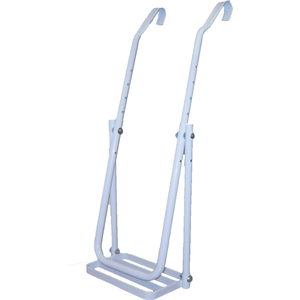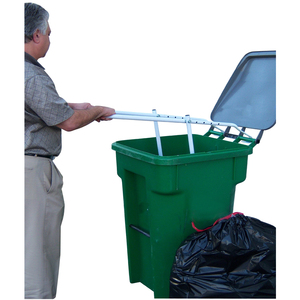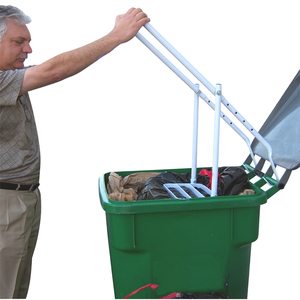
All categories
Featured selections
Trade Assurance
Buyer Central
Help Center
Get the app
Become a supplier

(2024 products available)













































The van garbage is an essential component in waste management and urban sanitation, playing a crucial role in maintaining the cleanliness of cities and towns. These specialized vehicles are designed to collect and transport waste from residential, commercial, and industrial areas to designated disposal sites. The robust nature of van garbage ensures they can handle large volumes of waste efficiently. Equipped with advanced hydraulic systems and compacting mechanisms, they are capable of reducing the volume of waste, making transportation more economical. The integration of modern technology in van garbage has significantly improved the efficiency and safety of waste collection processes, making them indispensable in the construction and building machinery sector.
There are several types of van garbage available to meet different waste management needs. Front loader trucks are often used for commercial waste collection, featuring an automated arm that lifts waste containers over the top of the truck to deposit waste into a hopper. Rear loader trucks, on the other hand, are common in residential areas. They have a large rear opening where waste collectors manually load the garbage. Side loader trucks are equipped with an automated arm that collects waste from the side, making them ideal for narrow streets. Each type of van garbage is designed to optimize waste collection based on specific logistical requirements and urban landscapes.
The functionality of van garbage is enhanced by a range of features that ensure efficient waste collection and transportation. Most models come with hydraulic lifting and compacting systems that allow for the compression of waste, maximizing load capacity and reducing the number of trips needed to disposal sites. Modern van garbage often include GPS systems and route optimization software to improve collection efficiency and reduce fuel consumption. Safety features, such as rear-view cameras and automatic braking systems, are also commonly integrated to protect operators and pedestrians. These features make van garbage not only efficient but also safe and environmentally friendly options for waste management.
The construction of van garbage involves using high-quality materials to ensure durability and longevity. The body of the truck is typically made from heavy-duty steel, capable of withstanding harsh operational conditions and the corrosive nature of waste materials. The hydraulic systems are constructed from robust metal alloys to handle the pressures of lifting and compacting large volumes of waste. Additionally, the interior of van garbage is often lined with corrosion-resistant coatings to protect against damage from waste liquids and chemicals. These material choices are critical in ensuring that van garbage can withstand the rigors of daily waste collection and provide reliable service over many years.
To maximize the efficiency and lifespan of van garbage, proper operational guidelines must be followed. Operators should be trained to handle the truck's hydraulic and compacting systems safely and efficiently. Regular maintenance checks are essential to ensure that all mechanical and electronic systems are functioning correctly. This includes inspecting hydraulic fluid levels, checking the integrity of the compacting mechanism, and ensuring that all safety features are operational. Additionally, operators should follow optimized collection routes to reduce fuel consumption and minimize environmental impact. By adhering to these guidelines, the operational efficiency and longevity of van garbage can be significantly enhanced, contributing to effective waste management solutions.
Choosing the right van garbage for waste management requires careful consideration of several factors. Firstly, the type of waste collection system and the environment in which it will operate are crucial. For instance, urban areas with narrow streets may benefit from side loader trucks, while commercial zones might require front loader trucks. Additionally, the capacity of the van garbage is an important consideration, as it affects the frequency of trips to disposal sites. Understanding the specific needs of your waste management operation will guide you in selecting the most suitable van garbage.
Another factor to consider when choosing a van garbage is the technological features integrated into the vehicle. Modern garbage trucks are equipped with advanced systems such as GPS and route optimization software, which can enhance efficiency and reduce operational costs. Safety features are also paramount, including rear-view cameras and automatic braking systems to protect both operators and pedestrians. Ensuring that the chosen van garbage has the necessary technology to meet operational demands is critical for effective waste management.
The capacity of a van garbage is determined by the volume of waste it needs to handle daily. Larger capacity trucks reduce the number of trips to disposal sites, saving time and fuel. However, these trucks might not be suitable for areas with limited space or weight restrictions. It's important to balance capacity with logistical constraints to ensure smooth operations.
Technology plays a significant role in the efficiency of van garbage. Features like GPS and route optimization software help in planning efficient collection routes, reducing fuel consumption and time spent on the road. Additionally, technological advancements in hydraulic systems and compacting mechanisms allow for better waste compression, maximizing load capacity.
Environmental considerations for a van garbage include emissions and fuel efficiency. Opting for vehicles with lower emissions and better fuel efficiency can reduce the environmental impact of waste collection operations. Additionally, choosing trucks equipped with technology to optimize routes can further minimize fuel consumption and emissions.
Yes, van garbage can be customized to meet specific waste management requirements. Customizations might include modifications to the loading mechanisms, capacity adjustments, and the integration of additional safety or technological features. These customizations ensure that the truck meets the unique needs of the waste management operation it services.
Maintaining a van garbage involves regular checks on hydraulic systems, compacting mechanisms, and safety features. Challenges can arise from wear and tear due to the corrosive nature of waste materials. Proper maintenance routines, including inspections and timely repairs, are essential to ensure the long-term reliability and efficiency of the vehicle.